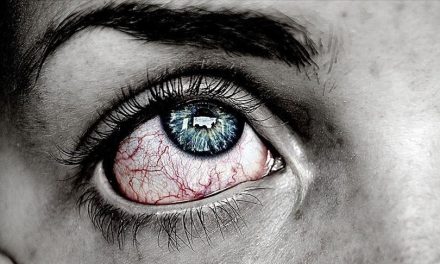You have high blood pressure and the doctor has removed the salt. It is not surprising.
The excess of salt in our diet (visible and invisible) “is directly related to the increase in hypertension and therefore with cardiovascular problems,” nutritionist Ylenia López Llata previously highlighted to Business Insider Spain.
It is not the only consequence. Spending regularly with the salt shaker could lead to weight gain.
Sodium is a mineral that your body needs for its proper functioning. Among other functions, it is responsible for maintaining blood pressure. Also that nerves, muscles and other body tissues work properly.
You take this through your diet. From the sodium that foods contain naturally, from the salt that you put in your meals when cooking and from which is added during the processing method of some products —as happens with almost all ultra-processed ones—.
The result of this sum of “visible” and “invisible” sodium is that in general you take too much salt. With the harmful effects on health that this entails, including weight gain, according to some scientific evidence.
Excess salt can make you retain fluids
One of the causes that is usually linked to fluid retention is excess salt.
Sodium helps you accumulate water. As explained from Healthline, your body uses the overabundance of this liquid to dilute the excess of this mineral, which you will excrete through the urine.
As your urine volume does not vary, this means that the extra water stays in your body and hence your scale marks a few extra kilos. Although when it comes to weight derived from fluid retention it is usually temporary, since the levels in the body tend to adjust.
But beyond the extra weight that water retention gives you, a high-salt diet could be related to a higher amount of body fat.
French fries, hamburgers, frozen pizzas, etc. Ultra-processed products are some of the foods that incorporate the most salt. Keep in mind that loaf and sliced bread can also be.
In turn, these products are usually very caloric, so if you tend to abuse them, it is easy for your weight to suffer. Obvious.
But this explanation is not always valid. As a 2015 study showed, higher sodium intake was associated with higher body weight and higher waist circumference, regardless of calories consumed.
Specifically, an increase of 1 gram in salt intake was associated with an increased risk of obesity by 28% in children and 26% in adults. It was also significantly related to greater body fat mass in both groups.
A possible explanation for this could be because, as shown by some scientific evidence, excess salt seems to have negative effects on the microbiome, killing the good bacteria in it. Poor gut flora has in turn been linked to obesity problems.
Excess salt, even the regular and abundant consumption of salts can bring serious health problems, including cardiovascular problems, elevated blood pressure, fluid retention, lack of calcium and other derived diseases. To know if we should stop, the The body sends signals either for ailments and even when serious problems such as heart attack occur.
Signs that you are consuming too much salt
If you have recently been diagnosed with high blood pressure, which is a clear sign that you may have been taking an exaggerated consumption of salt, it is time to stop, and start evaluating your diet, avoiding its consumption, even making a change for sea salt. However, that’s not the only downside to a diet heavily laden with sodium and salt. Discomfort and shocks can give us other signs that we are exceeding the line of allowed consumption of salt.
Frequent urination
Drinking too much water may be the reason why the urge to urinate frequently occurs, this is obvious, but did you know that eating too much salt can have the same effect? When too much salt is consumed, the kidneys have to work overtime in order to clean up the excess salt. For this reason, you end up urinating more than usual.
Persistent headaches
wooden spoon on surface with table salt
A recent study published in the British Medical Journal found that adults who consumed 3,500 mg of sodium per day had almost a third more headaches than those who only consumed 1,500 mg. There is a strong link between high blood pressure and headaches. This study found that salt consumers who had s





